News
Sound Rivers & Center for Biological Diversity Sue Over 540 Expansion
Posted on May 23rd, 2018
RALEIGH, N.C – On behalf of Sound Rivers and the Center for Biological Diversity, the Southern Environmental Law Center today filed a lawsuit in the United States District Court for the Eastern District of North Carolina challenging the United States Fish and Wildlife Service’s illegal approval of the $2.2 billion 540 toll highway.
The proposed highway would pave over 70 acres of wetlands, destroy more than 55,000 feet of streams, and cut through habitat essential to rare and endangered aquatic wildlife. For decades, the proposed toll road has failed to move forward due to its unprecedented cost, limited utility, and its impact on the natural environment. The Trump administration, however, is blindly pushing the project forward—by ignoring science, facts, and the law—and issuing an illegal permit.
“The Biological Opinion issued by Trump’s Fish and Wildlife Service violates federal law at every step,” said Kym Hunter, an attorney with SELC. “The permit fails to adequately study the impact of the proposed $2.2 billion toll highway on endangered wildlife and its habitat and fails to set in place protective measures to ensure its continued survival. This is just another example of disregarding science and the law in order to line the pockets of rich developers at taxpayers’ expense.”
“The health of Swift Creek and its vast aquatic diversity is of vital importance to protecting the overall health of the Neuse River,” said Upper Neuse Riverkeeper Matthew Starr. “Protecting the Swift Creek watershed is not just about one species, but about protecting an environmental system that supports numerous rare aquatic species and performs vital ecosystem services.”
“We are keenly concerned with the survival and recovery of the imperiled aquatic species in Swift Creek and beyond,” said Perrin de Jong, staff attorney for the Center for Biological Diversity. “Every species deserves to survive and thrive in its native habitat, but we are especially concerned with the decline of the mussel species highlighted in this lawsuit because they clean the water and ensure that the watershed can support the entire web of life sharing these streams.”
The North Carolina Department of Transportation has not yet made a final decision to move forward with the toll highway. The conservation groups have been urging Governor Cooper and Secretary of Transportation, Jim Trogdon to hit pause on the expensive, outdated loop highway concept and pursue other lower-cost, less-damaging options.
The groups put forward an alternative solution, ACCESS2040, which would rely on upgrading existing roads and innovative transportation improvements to reduce congestion throughout the Complete 540 project area at a much lower cost. ACCESS2040 would cost just $293.7 million above already-planned improvements, compared to the $2.2 billion price tag accompanying the 540 extension proposal. Unlike the 540 extension, ACCESS2040 would be open to all users—not just those willing and able to pay a pricey toll. ACCESS2040 would also cause significantly less environmental destruction.
The conservation groups point to the economic development opportunities ignited when cities turn their emphasis to fostering walkable, bikeable, vibrant communities rather than sprawl. Large companies like Amazon and Apple have been clear that they value these qualities as they search for a new headquarters.
###
About the Southern Environmental Law Center
For more than 30 years, the Southern Environmental Law Center has used the power of the law to champion the environment of the Southeast. With over 70 attorneys and nine offices across the region, SELC is widely recognized as the Southeast’s foremost environmental organization and regional leader. SELC works on a full range of environmental issues to protect our natural resources and the health and well-being of all the people in our region. www.SouthernEnvironment.org
About Sound Rivers
The mission of Sound Rivers is to monitor and protect the Neuse and Tar-Pamlico River watersheds covering nearly one quarter of North Carolina, and to preserve the health and beauty of the river basin through environmental justice. https://soundrivers.org
About the Center for Biological Diversity
The Center for Biological Diversity is a national, nonprofit conservation organization with more than 1.6 million members and online activists dedicated to the protection of endangered species and wild places. www.biologicaldiversity.org
Related News
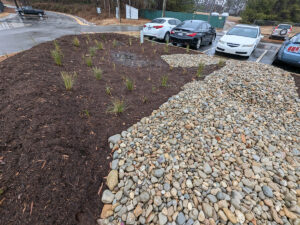
Nash stormwater control measures get rain-tested
January 9th 2025

2nd fuel spill prompts local partnership discussion
January 9th 2025
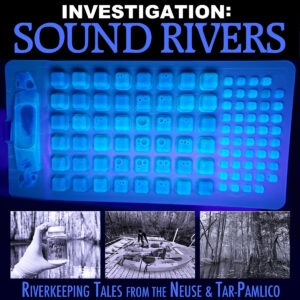
New podcast episode: 'Investigation: Sound Rivers'
January 9th 2025

Welcome 2025!
January 2nd 2025

Welcoming the new year with a recap of 2024!
December 27th 2024
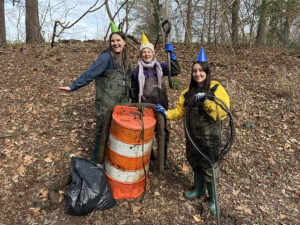
Trash traps get holiday cleanouts!
December 19th 2024
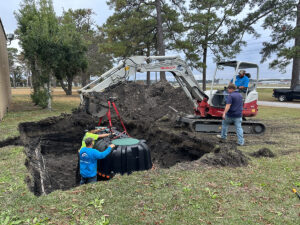
Underground cistern a first for Sound Rivers
December 19th 2024
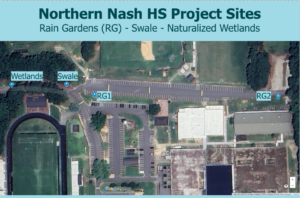
Campus Stormwater takes on Northern Nash
December 19th 2024

